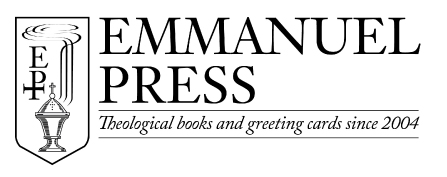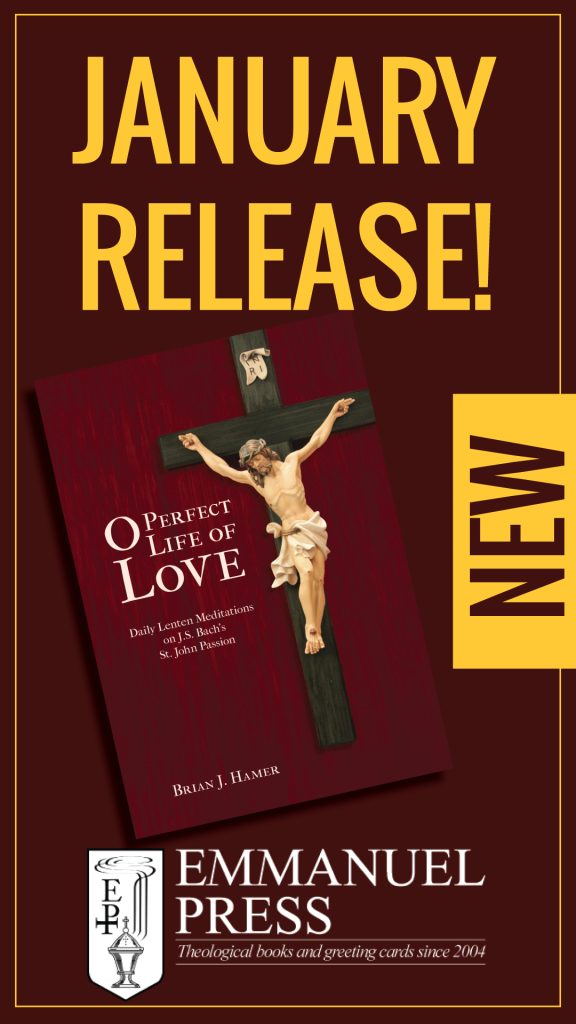
From God With Us by Pr. David H. Petersen.
He came unto His own. His own received Him not. It is not merely wicked Herod. It is all of Jerusalem that rejects Him, for all of Jerusalem is deeply troubled at the coming of the wise men from the East.
The wise men want to know where the King of kings, the Prince of Peace, is to be born. They are wise by virtue of Daniel. He had prophesied in their country. He must have brought them at least some of the books of Moses, for they have Balaam’s promised sign of a star. They have seen it fulfilled. By faith, with trust that the God of Moses has fulfilled these things and provided a Savior, they come to worship the one thereby announced. But the star, for the time being, has only led them to Jerusalem, and they do not know where the Messiah is.
It seems that they did not have all of the Old Testament, that they did not have even all of the things written by the time of Daniel. In any case, they did not have Micah’s promise to Bethlehem, even though Micah predates Daniel. But it was not a great mystery as to where the Messiah was to be born for those who did. The priests were well-trained in the Scriptures. They knew all about the thirty pieces of silver and the potter’s field. They were quick to respond to the wise inquiry: “Bethlehem.”
And yet, none of those Biblical scholars followed the wise men to Bethlehem. Instead, they were troubled with Herod, and all Jerusalem with them. They were not rejoicing. They were raging, plotting. They did not want the Messiah and the necessary upset that He would bring to the world. Herod lashed out with Satanic hatred and violence unequaled in all of time, and he did so with the consent of both Jerusalem and the theologians. The boys of Bethlehem and their mothers bore the brunt of that wicked rage.
The boys gave up their lives while the fullness of God hidden in Mary’s babe slipped off in the night. What kind of a God is this who lets the babies die? What kind of a reward is this for David’s city? Where is the peace pronounced by angels to the shepherds in Bethlehem’s fields? Where is God’s good will toward men?
The answer is not very satisfying to our intellect: the ways of God are not our ways. His thoughts are not our thoughts. But it is satisfying to faith. And if you think that you have plumbed those depths, that you understand Him, that His ways and thoughts make sense, then you have committed idolatry. You are worshiping a figment of your imagination which you call God but who looks and thinks like you. Repent. He is not fully comprehensible and we cannot judge Him. We have no right to make demands or to insist on what seems just to us. We submit in faith and wait for His goodness to be revealed.
What we have is what He has given us. We have His Word. It is His revelation to us, His self-revealing. We can go nowhere else. In that Holy Book we are told that in this way, by the horror of Herod’s slaughter in Bethlehem, is the prophecy from Hosea fulfilled: “[O]ut of Egypt I called my son” (Hos. 11:1). That was the purpose and it is good. The boys died. Their mothers mourned and refused comfort. Jesus escaped in weakness, and in weakness He came forth again from Egypt after Herod’s death. He is the Lamb led to the slaughter without complaint or resistance, but not until the appointed time. He responded to Herod’s violence, even as He would later to Caiaphas and Pilate, with humility.
He submitted to their violence, but only of His own will, in His own time, on His own terms. God is hidden in the weakness of that infant flesh. No one forces His hand. The daring rescue of mankind that will cost Him His life cannot be thwarted, but it will only be accomplished when all things are fulfilled. In the meantime, the boys of Bethlehem are spared a life of suffering. They went early to their reward. Unlike their mothers, their hearts were never broken. They were never lonely. And thanks be to God, they never had to suffer the disabling sadness that comes from outliving one’s children.
They died that day so that Jesus might escape and return to die for them. His martyrdom is the liberating gift to the boys of Bethlehem. His life is exchanged for theirs. They seemed to die that day, but they really lived. Herod delivered them to heaven, peace, and joy without measure. Thus they praise God still, not by speaking but by dying. Their lives are empty of themselves and are filled with Him.
So it must be for each of us. The life Jesus lived, He lived for us. The death He died, He died for us. And the resurrection to which He rose, He rose for us. When we are broken upon Him, who was rejected by the appointed builders but made the chief stone by the Father in heaven, then the life, death, and resurrection of Jesus is ours. He breaks us, empties us, so that He might rebuild and fill us. He slays us so that He might raise us again to life. His ways are not our ways: they are better, even when they hurt. In the end, we are the ones who are called out of Egypt and away from Pharaoh’s slavery to sin and death. He makes us weak, like children, and then in Him—only in Him, always in Him—we are strong.
“He came unto his own, and his own received him not. But as many as received him, to them gave he power to become the sons of God, even to them that believe on his name” (John 1:11-12 KJV). The boys of Bethlehem were not abandoned. Their mothers found comfort in the wounds of Jesus who died also for them. Now they have been reunited with their sons. They will never be separated again. And already now, after maybe fifty long years of grief here on earth without their babies, they have enjoyed nearly two thousand years in perfect bliss won by Jesus with their children. Thus saith the Lord to the women of Ramah who refused comfort, “Refrain thy voice from weeping, and thine eyes from tears: for thy work shall be rewarded, saith the Lord; and [thy children] shall come again from the land of the enemy” (Jer. 31:16 KJV). Death is not the end. The enemy loses. He does not get our children. He does not get us. Rachel is rewarded.
Thus St. Paul writes: “For I reckon that the sufferings of this present time are not worthy to be compared with the glory which shall be revealed in us” (Rom. 8:18 KJV).
God be praised. He does all things well.
In Jesus’ name. Amen.
__________
See also: A Hymn for Holy Innocents sung in Gregorian chant.



